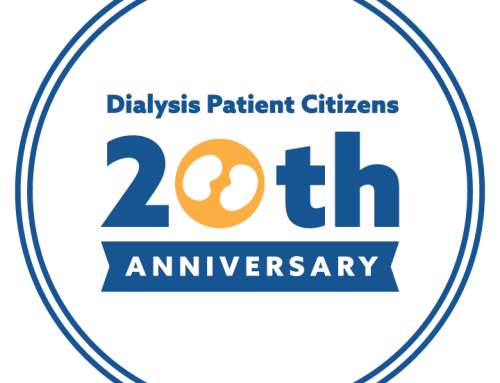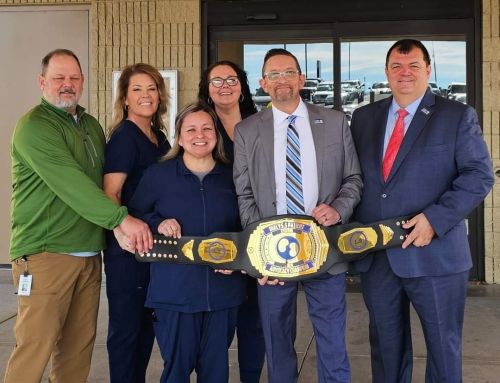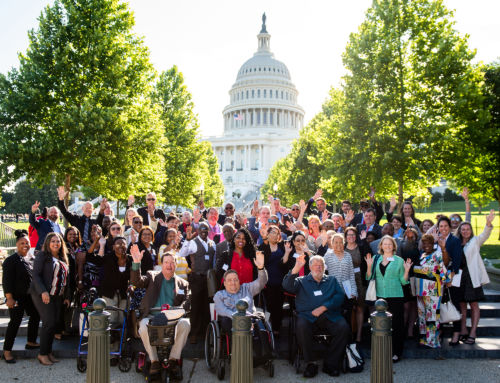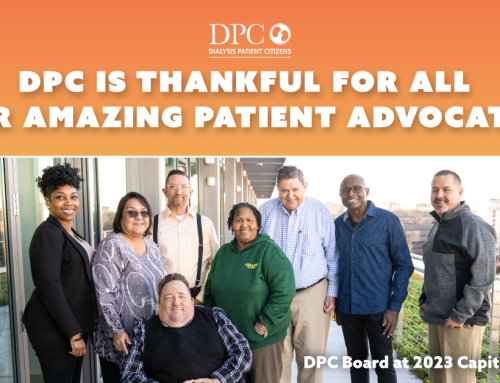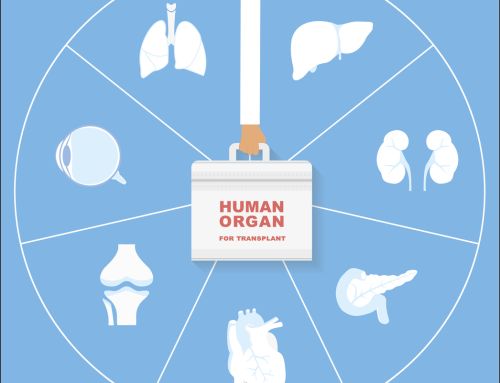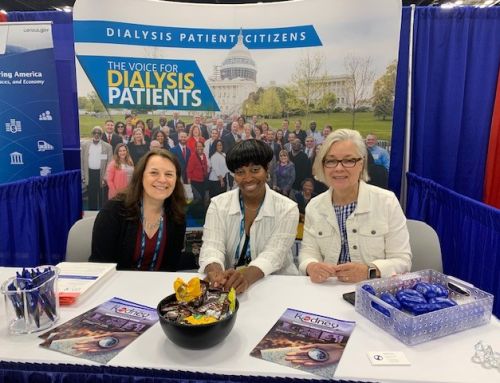State legislatures are in high gear during spring, and efforts by state legislators to support dialysis patients are in full swing this month. We’ve already had several legislative victories on living organ donor protection bills, while Medigap expansion legislation for the ESRD population has been introduced in multiple states. With support from multiple DPC Patient Ambassadors and Board Members sharing their personal stories on these two policy issues, DPC is making robust arguments for states to actively help improve the quality of life for End Stage Renal Disease (ESRD) patients.
Kentucky, New Jersey, Maryland and Washington legislatures have already passed living organ donor protection bills this session; one has been signed into law by the governor – Kentucky — while signature by the governor in the other states is pending. Other living donor protection bills are still moving through the state legislature in Connecticut, Illinois, Ohio, Pennsylvania and Texas, and a bill is also expected in Louisiana which just recently started its session. Patient Ambassadors Stephanie Shabanowitz and Adam Goldstein submitted support letters in Connecticut, as did DPC Board Member Nathalie Zuniga in Texas, all of which helped secure approval from their respective state’s House Insurance Committee. The Connecticut bill is currently awaiting a full Senate vote, while the Texas bill recently passed the House and has progressed to the Senate side. Similarly, Michael Nicholas, a Patient Ambassador from Illinois, shared his story in a letter of support to the Illinois Senate Revenue Committee, helping move the bill to the Senate floor where it awaits a vote.
Most of these living donor bills prohibit disability, life and long-term health insurers from discriminating against living organ donors, while Maryland’s bill increases the income tax subtraction multiplier for living organ donors to $10,000 and permits the inclusion of child and elder care costs. Maryland Patient Ambassador Dr. Fatimah Jackson provided a boost to our efforts to secure passage with her support letter.
On the Medigap front, DPC is pleased that multiple states are currently considering bills to improve access to Medigap plans, including the under age 65 ESRD population. Significantly, a few states – Arizona, Kentucky, and Rhode Island – that don’t guarantee access to Medigap for Medicare-eligible patients under age 65, have introduced bills this session that would expand Medigap access to ESRD populations under age 65. Nevada introduced very similar legislation for disability patients, and we are actively trying to amend the bill to include ESRD patients. Legislators in Nevada, along with Illinois, Maryland, and Texas, have also introduced bills to expand enrollment eligibility periods – often referred to as the “birthday rule” that allow ESRD patients to switch Medigap plans without medical underwriting – also called guaranteed-issue. DPC Board Member Maria Robinson shared her story in a letter of support for the bills in Maryland. While the Maryland bills did not progress, the sponsors are committed to re-introducing legislation next year. A bill in Connecticut would expand access by adding another plan offering to under age 65 ESRD patients. A bill in New Hampshire would require insurers to inform their Enrollees who purchased Medigap plans before age 65 that a premium reduction will occur once they turn age 65. DPC Board Member Pius Murray wrote a letter of support for this bill, helping gain approval in the Senate. The bill is now being considered by the House.
While not every bill introduced this session will pass, our efforts in several states has developed lasting relationships with state legislators that will be beneficial in the future as we continue to work on these important policy issues.









